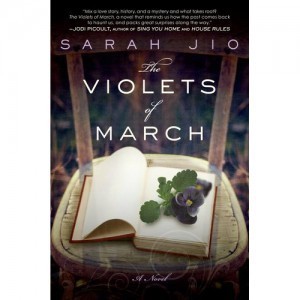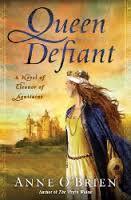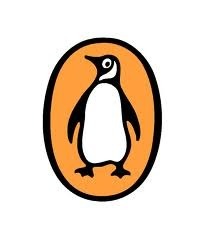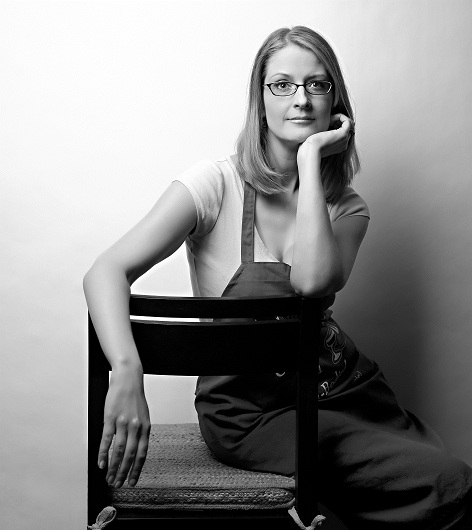Erika Robuck's Blog, page 29
May 22, 2011
Review: The Violets of March

"Bee was unconventional, indeed. But there was also something a little off about her. The way she talked too much. Or talked too little. The way she was simultaneously welcoming and petulant, giving and selfish. And then there were her secrets. I loved her for having them."
THE VIOLETS OF MARCH, Sarah Jio
THE VIOLETS OF MARCH, by Sarah Jio, is 304 pages and was published in April of 2011. I heard a lot of positive buzz about the book on Twitter, so I bought it. I was reading two other books at the time, but I read the first chapter of VIOLETS just to get a feel for it and didn't close it until two days later. I'm officially declaring this the beach read of the 2011 season.
When the story opens, former New York times bestselling author, Emily Wilson, watches her husband leave her. She's barely able to write her name on the divorce papers let alone work on a manuscript, so she seeks retreat at Bainbridge Island, Washington–the place that held all of the magic of her young summers, and her beloved and mysterious Aunt Bee.
Almost as soon as she arrives, the inhabitants of the island gravitate toward Emily and she becomes involved in a decades-old mystery that continues to haunt all involved. When Emily finds a diary in her room at her Aunt Bee's house, she starts to piece together the past. What she learns not only has implications for the inhabitants of Bainbridge Island, but also for herself.
For me, a great beach read has certain elements–a beach setting, memorable characters, secrets, a mystery, and a dash of romance. THE VIOLETS OF MARCH is a captivating blend of all of these ingredients. Jio's descriptions of the island in Washington State are vivid and effective. Every time I picked up the book I was immersed in Emily's world in the small, charming, island town. I was interested in all of the characters, and the resolution of the book was satisfying and believable.
On a side note, I was amazed to learn that Sarah Jio (one of the nicest people on Twitter) is the mother of three very young sons, and managed to write this book while she was pregnant with the third. She is an inspiration to work-at-home mothers everywhere.
Have you read THE VIOLETS OF MARCH? I'd love to hear what you thought of the book.








May 16, 2011
Guest Post at Brava!
I'm guest blogging at Beff Hoffman's blog "Brava!" today on the topic of Critique Partners. Beth is a New York Times bestselling author, and her latest book, SAVING CEECEE HONEYCUTT, is one of the most charming works of Southern women's fiction I've read.
Thank you, Beth!








May 11, 2011
Review: Queen Defiant

QUEEN DEFIANT: A NOVEL OF ELEANOR OF AQUITAINE, by Anne O'Brien, is 412 pages and will be published in the US in June of 2011. I wanted to read it because it is published by NAL/Penguin (my new imprint!) I was sent a copy for review, and I was not disappointed.
Eleanor, Dutchess of Aquitaine and Gascony, has grown amidst splendor, education, and culture in her home lands. The king of France arranges a marriage between her and his son, Louis the Sixth, in order to acquire her regions and secure an heir for his son. While Eleanor looks forward to the marriage, she soon learns that her husband–a second son more fitting a position in the church than as a future king–is reluctant to fulfill his roles as a husband and ruler.
Years of frustration and boredom pass for Eleanor, but as a woman shrewd in business and in love, she soon makes alliances that will benefit her future more than she can understand.
Anne O'Brien's characterization of Eleanor is vivid and complete. From a naive girl of fifteen to a wise, worldly, and powerful woman of thirty, Eleanor stops at nothing in her quest for preservation of her birthright and security for her future heirs. Her decisions aren't always noble, but always well thought out, and it is her acumen that draws the admiration of the reader.
This is the first novel I've read by O'Brien, and certainly won't be the last. QUEEN DEFIANT is a riveting historical saga in the style of Philippa Gregory and with the tension of Ken Follett's PILLARS novels. I highly recommend it.
May 8, 2011
Conference Love: Algonkian Writer Conferences
It is said that if relationships don't grow, they die. I believe this is true, including in one's relationship with writing. There's only so much time one can sit alone behind a desk on a laptop before staleness, fear, and uncertainty take over. Twitter and Facebook can make a writer feel more connected for awhile, but until a physical, public act is taken to acknowledge the writing, it will probably remain just a hobby.
I've been reflecting a lot lately on the conferences that have been most beneficial to me as a writer, both for business and craft, and found myself getting a little sentimental about my first writing conference about seven years ago, The Algonkian Novel Workshop.
Nestled on the banks of the Potomac in Northern Virginia, the workshop took place in a cabin in the forest. I was very naive, hugely pregnant, and nervous as hell to leave my husband and young son. It meant something big: I was making a physical commitment to my writing career.
After one morning, surrounded by other writers at many different stages on their personal journeys, I knew I was home. I'd found a group of people like me who felt the way I did about words and storytelling, and the support and encouragement were exactly the foundation I needed to start a writing career.
At the conference we read sections of classics and contemporary works demonstrating craft concepts, we wrote vigorously, brainstormed and critiqued sections of our works in progress, meditated, had readings, and got one on one editorial attention. Many of the connections I made at the conference remain with me to this day.
Whether you've just completed a first draft of a novel or a tenth draft, the Algonkian Novel Workshop could be just the step you need to take your writing public. Attending a writing conference will not only improve your technique and force you to retreat into your work, but it marks a true growth point in your relationship with your writing.
Have you ever been to an Algonkian Conference? Do you recommend any other conferences for improving craft?








May 6, 2011
Great Novel! When Can I Read the Next One?

A question from blog commenter, Natalia Sylvester, inspired me to write this post about how I got a two book deal. I'll share my story in hopes that any writers reading this do something very important:
Keep Writing
Before I get to the specifics, I'll take you back to some wise words from Donald Maass at his Breakout Novel Intensive Conference I attended in September. He said that the most common complaint of his authors was that they wish they had the time they'd had before publication to write stories. Many publishers expect a book each year once they sign you, and this can be quite a challenge.
When I finished HEMINGWAY'S GIRL and sent the book on submission to agents and eventually, to publishers, I was tempted to lean back, relax, and play more Jewelquest. After all, I'd just completed two and a half years of devotion to the book. I felt as if I deserved a break.
But something happened; I didn't want a break. An obsession with a new historical figure had been brewing. While my agent submitted my novel to publishing house editors, I fed my new obsession and felt a story growing around it.
Then, an editor from Penguin wanted to speak to me on the phone. She loved HEMINGWAY'S GIRL and had many questions for me about the story and about my background. We had a great chat about the novel, but she was also very interested in what I was currently writing. My level of interest for my new subject was such that I was able to speak clearly on the new novel. It showed the editor that I was a serious writer interested in a career. I believe that question was the deal maker.
Writers, I know that saving the final revision on a novel is a moment of extreme triumph. Crafting a novel is an emotional journey–ask the spouse and family of anyone involved. When you complete a novel you do deserve to breathe for a bit, recharge your battery, and reset your mind for a new journey. If you need a significant amount of time, however, I'd recommend holding off on the query process until you are ready to jump into a new novel. There are several reasons for this:
First, it will give you something to focus on so you don't obsess over agent/editor responses to your work. Nothing stifles creativity like a self-addressed stamped envelope carrying a form letter rejection. If you invest all of your energy and emotions into one project it places too much importance on it.
Second, when you do get an editor interested in your work, you will have an answer for, "What are you working on now?" I now know, firsthand, how important it is to have an answer to this question.
There is one final reason you should be working on your next novel: your readers. I self-published my first novel, RECEIVE ME FALLING, and was blessed to have had wonderful reader responses. The most common, however, sometimes made me feel wrung out. It was this:
"When can I read your next one?"
Don't get me wrong, this is music to a writer's ears. On the wrong kind of day, however, it actually sounds like this:
"When can you mine history for obscure facts, make dozens of time lines, uncover universal themes important enough to share, while packaging them neatly within three hundred pages splattered with your deepest fears, longings, and judgments for my consumption?"
Let me reemphasize, the former are words every writer longs to hear and provide the best possible compliment, but if you don't have something ready to say in response, a dissatisfying experience in communication results for all involved.
Writers, if you are able, keep working on the next project. Life gives us both welcome and unwelcome breaks from writing that are beyond our control. If you've finished a story, recharged, and have the time and energy, start your next project. Your editor, the world, and your SELF will thank you for it.
*Photo courtesy of PszczolaM at DeviantArt.com








May 4, 2011
Guest Post
I'm guest blogging at Cathleen Holst's lovely page, "Celebrating Sister Writers," on the topic of immersion.
Thank you, Cathleen!








May 3, 2011
After the Deal #1: The Contract
This is my first post in my "After the Deal" series, designed to help inform writers and curious readers about the traditional publishing process. Today, I'll talk about the deal memo and the contract.
Once all of the hoopla, champagne drinking *hiccup*, and general madness settles after the offer, the business of writing begins. My agent and I received a deal memo from my publisher that outlined the basic terms of the contract that we'd agreed upon. Some of the information covered included: advance numbers for books one and two, a payout schedule for the advances, a listing of territory & other subsidiary rights, and royalty percentages.
ADVANCES AND SCHEDULES
Advances are typically paid in three installments we'll call thirds (though they don't always divide up equally into thirds.) The first third is paid upon signing the physical contract. The second third is paid upon delivery and acceptance of edits. The final third is paid on the publication date.
Most people outside of publishing (and let's face it, most writers) think a huge advance is a good thing; and it is, but with it comes a lot of pressure. If you don't earn out a huge advance, things can get a little dicey. That's why it's so important to have a great agent who can help you strike a balance between a good, fair advance sum and one that sets you up for success.
I am very blessed to have a two book deal, and the benefit of that is that the two timelines run concurrently. While I'm working on edits for HEMINGWAY'S GIRL, I'll also need to work on planning and drafting the second book. The first draft of my second book will most likely be due before the publication date of HEMINGWAY'S GIRL. I'll also be able to work with my editor at the publisher throughout the process on idea development, synopsis and scene reads, and troubleshooting for my second book.
My publisher had a scheduling meeting last week and has marked September of 2012 as the release date for HEMINGWAY'S GIRL. Now that we have that date, we are able to set the target dates for edits and drafts of both books.
It will take four to six weeks for the contracts department to complete the contract, and my editor plans on getting me the revision report for HEMINGWAY'S GIRL by this summer. In the meantime, I'm working furiously on completing research for my second book so I may begin drafting it.
RIGHTS
One of the most exciting things about publishing is the breadth of possibilities for reaching readers. My publisher has World English, ebook, and audio rights to my books specified in the deal. My agent was able to retain foreign rights and film/performance rights. My agent works at a boutique agency, so she has a subagent who will work to sell my books in foreign markets. It's nice to have a balance of division of rights so both the publisher and author are satisfied.
ROYALTIES
Doesn't that word have a nice ring to it? It's the target for all authors, because if you're earning royalties you've earned out your advance money and made your publisher very happy. This makes for a healthy long term relationship in publishing.
Writers, if you have anything you'd like to add, please include it in the comments. If you have any questions, please feel free to comment or email me directly.
May 2, 2011
The Deal!

Greetings!
The last two weeks have been very quiet on my blog, but they've been very active in my life. If you haven't already heard, I'm thrilled to announce that NAL/Penguin offered me a two book deal for my novel, HEMINGWAY'S GIRL, and my current WIP (work in progress.) This happened while I was on the North Carolina coast with my family last week. Needless to say, negotiating contracts with an agent and editor while sharing a beach house with three families and five boys under the age of nine is a challenge; but God bless my family for herding the children out of the house so I could hide inside, on the phone.
The week after the deal involved a roller coaster of emotions, announcements, and organization and I've finally (for the minute) settled into a joyfully optimistic professional working mode. The biggest mental adjustment I've had to make in this process is to fully acknowledge that I now have a full time job and I work for someone else. When I self-published my first novel, RECEIVE ME FALLING, and even as I thought about self-publishing HEMINGWAY'S GIRL, I worked at my own pace and made all decisions myself. That has changed, and I'm ready to embrace that change and take my writing to the next level.
All along this process I've read so much about how to get an agent and a publisher, but I've read almost nothing about what happens after the deal. I'm going to blog about my own experiences in hopes of shedding light on the process for other writers.
But today, I'm just going to celebrate. I've dreamed about this since I was a child, and I want to be mindful of this fresh new place and all of the promise it holds before it becomes my reality.
Thank you for all of your well wishes and encouragement. So many of you have given me so much along the way. There aren't enough words to express my gratitude to my husband, children, parents, family, writing partner, and friends for how they've supported me.
Much love,
Erika








April 20, 2011
Postcard
April 13, 2011
Author Q & A: Jael McHenry
Yesterday was the pub date of THE KITCHEN DAUGHTER which I LOVED. I met Jael at a recent Tweet Up in New York, and she is every bit as charming as her fiction. She was kind enough to answer some questions I had for her after reading the book.
It was such a pleasure to read such a unique work of fiction. Where did you get the idea to have ghosts conjured from handwritten recipes?
Thank you! I'd been writing fiction and trying to get it published for a long time, but it just seemed like I couldn't quite break through. So I started doing some soul-searching. I realized that I love to cook – it's something I'm passionate about – but I had never written a character who had that same passion. So I was just walking around every day trying to think of how cooking could drive a plot. And I was literally standing in my kitchen, staring into an open refrigerator, and boom – the idea hit me. What happens when she cooks? The ghosts of the people who wrote the recipes are drawn back into her kitchen. Everything flowed from that moment of inspiration.
It's clear that you love cooking. Will future novels center around the kitchen?
I may come back to the kitchen for a future novel, but the one I'm writing next isn't based there. That was a two-fold decision. First, I worried that if my second book was also foodie fiction, that I would basically need to write only foodie fiction for the rest of my career – which certainly wouldn't be the worst fate in the world, but I like to keep my options open. Second, I just didn't have another great food idea to write about! I'm not a chef and I've never worked in a restaurant, so I didn't want to write about those worlds, and I didn't want my second book to be too much like the first. So, I'm headed in a different direction for now.
Have you always written magical realism, or did it surprise you? Do you think you'll continue to write fiction with magical aspects?
I do really like this particular type of magical realism – it's a very real world, it's recognizable as the world we live in, except for a single game-changing supernatural element. It's not a completely magical world. It's real enough that when Ginny starts seeing the ghosts, she's not going to share that information. Some of the other book ideas I've worked on either have a supernatural element or a supernatural question – is this character imagining things or is something impossible actually happening? – so I think that's likely to be a common thread in most, if not all, of my fiction.
How long does it take you to write a novel? Are you a plotter or a pantser?
It really varies. I'm a very fast drafter, but I go through a lot of revisions. I try to plot beforehand, but I end up veering away from my outline pretty quickly, because I discover as I go. So I think I'm an aspiring plotter, but I may just be an inveterate pantser.
Who are some writers who inspire you?
My number one writing inspiration is Margaret Atwood. I just love her work, especially her novels Lady Oracle and Alias Grace. She's not literary, she's not commercial, she's not sci-fi, she's just an excellent writer who finds inspiration in a thousand different places. And she writes beautifully, of course, but I never find her work self-indulgent. It's never just about the sentences. There's always a compelling story.
Thanks so much for these insights, Jael. I wish you all the best with your debut.
You can find out more about Jael on Facebook, Twitter, or her blog, Simmer.




































